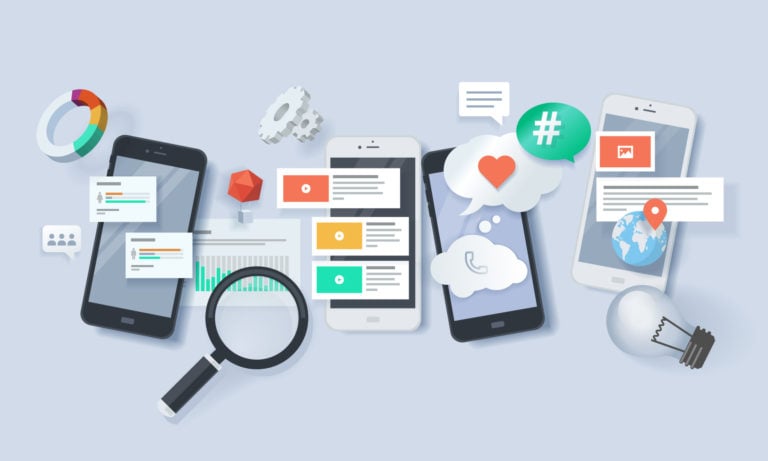Mobile Advertising IDs – MAID – how does this affect your privacy?
In the palm of our hands, our mobile devices have become extensions of ourselves – our connection to the world, our personal assistants, our entertainment hubs.
Yet, beneath the sleek interfaces and intuitive apps lies a hidden mechanism, silently collecting data about our every tap, swipe, and scroll: the Mobile Advertising ID, or MAID.
While seemingly innocuous strings of characters, these unique identifiers are the backbone of a sophisticated, often invisible, tracking network, profoundly impacting our privacy and shaping our digital experiences in ways we might not fully grasp. Imagine walking into a bustling market. Every stall owner knows your name, what you’ve bought before, what you’re looking at, and even where you’re headed next. They whisper suggestions, offer deals tailored precisely to your past interests, and subtly guide you towards their wares. This isn’t a fantasy; it’s the digital reality MAIDs create.
MAIDs are essentially anonymous digital fingerprints generated by your phone’s operating system (whether Apple’s iOS or Google’s Android). Unlike cookies, which track your web Browse, MAIDs primarily track your in-app behavior. Every app you open, every game you play, every article you read – the data generated by these interactions is linked to your MAID. This seemingly fragmented data is then pieced together by advertisers and data brokers, forming comprehensive profiles of your interests, habits, demographics, and even your physical movements through location data.
The human element in this equation is often overlooked. We, the users, are not just data points; we are individuals with unique lives, preferences, and a fundamental right to privacy. The allure of “personalized experiences” and “relevant ads” is often presented as a beneficial exchange, a trade-off for free services. But what’s the true cost?
Consider the subtle erosion of autonomy. When algorithms, powered by MAID data, anticipate our desires before we even consciously form them, are we truly making free choices? The news articles we see, the products we’re shown, the content we’re recommended – all are influenced by these invisible profiles. This can lead to echo chambers, limiting our exposure to diverse perspectives and potentially reinforcing existing biases. Our digital world, crafted by our MAID, can become a curated bubble, designed to keep us engaged and, crucially, to keep us spending.
Beyond the psychological impact, there’s the tangible risk of data breaches and misuse. While MAIDs are technically “anonymous,” they can be linked to other pieces of information, potentially de-anonymizing users and exposing highly sensitive personal details. This aggregate data, in the wrong hands, could be used for discriminatory practices, targeted manipulation, or even identity theft. The more data points linked to our MAID, the greater the vulnerability. The companies that thrive on MAID data – the Googles, the Facebooks, the X’s of the world – argue that this tracking is necessary to fund their “free” services and deliver a better user experience. And indeed, personalized advertising can sometimes be genuinely useful. But the current paradigm often feels less like a helpful concierge and more like a pervasive observer, silently cataloging our lives for commercial gain.
So, what can we, as humans navigating this complex digital landscape, do? The good news is that we’re not entirely powerless. Both Apple and Google have introduced measures that give users more control over their MAIDs. On iOS, Apple’s App Tracking Transparency (ATT) framework requires apps to explicitly ask for your permission before tracking your activity across other apps and websites. This has significantly impacted the advertising industry, as many users opt out. Android also offers ways to reset your advertising ID and opt out of ad personalization.
However, these measures are just a start. The onus should not solely be on individuals to constantly manage their privacy settings. Regulators worldwide are increasingly recognizing the need for stronger privacy protections, with legislation like GDPR in Europe and various state-level laws in the US attempting to rein in the rampant collection and use of personal data.
The future of privacy will likely involve a combination of user control, robust regulations, and a shift in industry practices towards more ethical data collection.
Ultimately, the conversation around MAIDs and privacy isn’t just about technology; it’s about human dignity. It’s about our right to control our own narratives, to explore the digital world without feeling constantly watched, and to retain a sense of personal space in an increasingly interconnected existence. As we move forward, it’s crucial that we, as a society, demand greater transparency and accountability from the companies that wield this invisible power, ensuring that the convenience of the digital age doesn’t come at the unbearable cost of our privacy. Our digital footprints are a part of our identity, and like our physical selves, they deserve to be protected.


